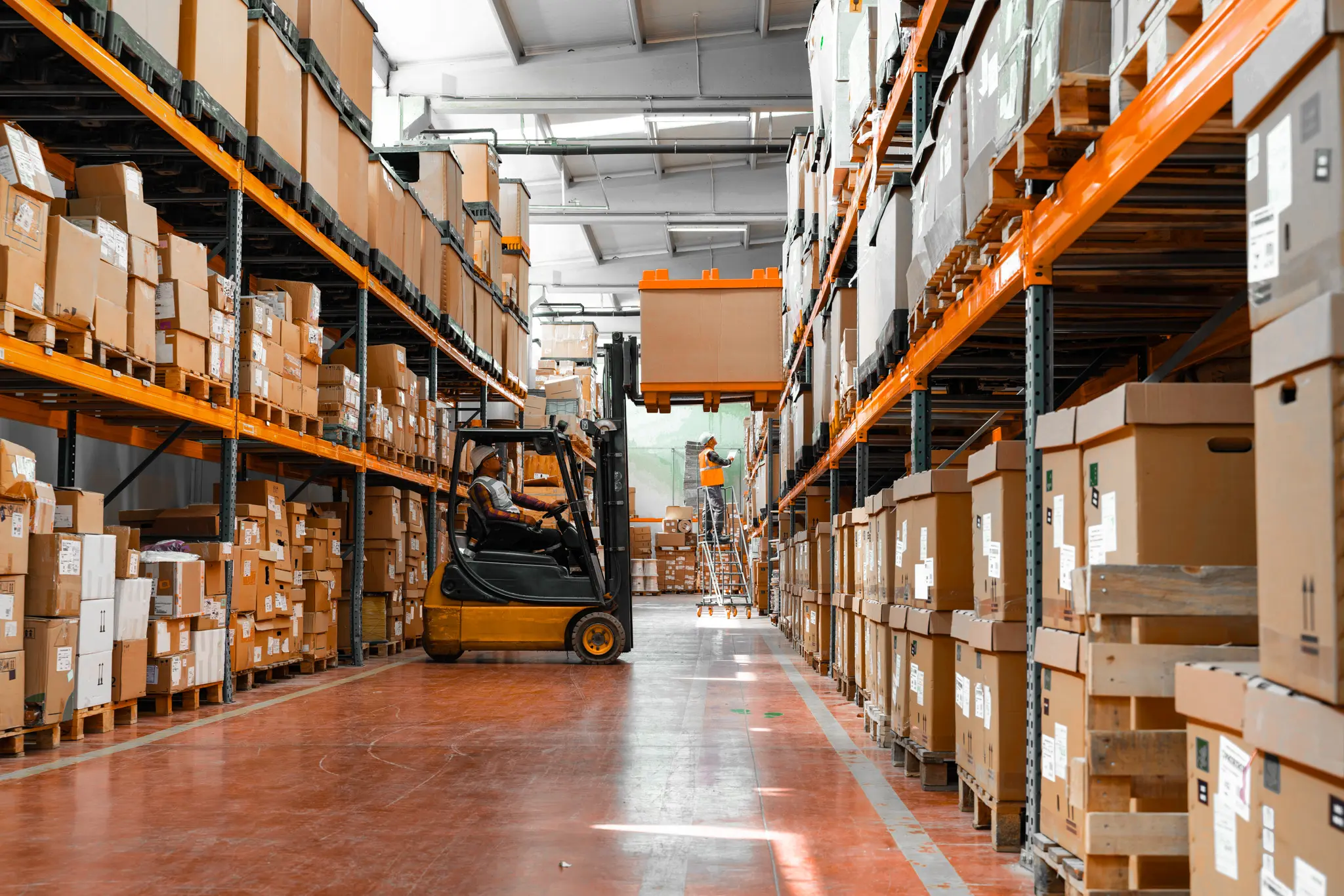Amazon FBA vs. FBM Defined
If you’re looking to launch your eCommerce business on Amazon, you need to decide on the fulfillment option for your store. The Seller Central program offers three fulfillment programs to choose from, namely:
- Fulfillment by Amazon
- Fulfillment by Merchant
- Seller Fulfilled Prime
In this article, we’ll compare and contrast the first two fulfillment programs to help you find the right option for your business.
Even Amazon makes mistakes! Gain insights into money that is owed to you with Sifted’s Amazon audit.
Fulfillment by Amazon (FBA)
Fulfillment by Amazon (FBA) enables independent retailers to send their products to Amazon’s fulfillment centers. From there, Amazon stores them and picks, packs, and delivers them to the customer.
eCommerce businesses have been using FBA since 2006 to sell products without the need for their own warehouse and order fulfillment process.
Amazon Fulfillment by Merchant (FBM)
Amazon Fulfillment by Merchant (FBM) allows sellers to use their own warehouse facilities and shipping service (or a third-party logistics service) to deliver orders to their customers.
Unlike Seller Fulfilled Prime (SFP) and Fulfillment by Amazon (FBA), FBM sellers don’t have the advantage of being a Prime Seller.
Pros and Cons of Amazon FBA
PROS:
- Amazon Prime Badge: As an FBA seller, you can sell to Amazon Prime customers. With over 110 million Amazon Prime subscribers in the United States alone, the Amazon Prime badge gives a serious boost to the sales potential of your Amazon store items.
- Buy Box: It is the white box shown on the Amazon product detail page which brings in serious cash flow to your business. However, its eligibility requires you to meet Amazon’s performance-based requirements.
- Amazon’s Low Shipping Rates: Amazon FBA sellers have access to Amazon’s state-of-the-art order fulfillment system as well as its network of shipping services, enabling them to spend less on shipping fees.
- Prime Shipping: FBA products are eligible for Prime Shipping. As a result, you’ll be able to offer 2-day shipping to your Amazon Prime customers with no extra charges.
- Worry-free inventory and logistics: FBA is a straightforward solution for entrepreneurs and SMBs that would rather outsource their fulfillment services because they don’t have the resources to run their own order fulfillment process.
With FBA, you don’t have to worry about picking, packing, hiring inventory management, and communicating with shipping carriers and customers. Amazon takes care of the order fulfillment process, while you focus on other business activities like sourcing, manufacturing, and product development.
- Amazon handles customer service and returns: With FBA, Amazon takes care of customer service, returns, refunds, and exchanges.
- Multi-Channel Fulfillment (MCF): By paying MCF fees, Amazon lets you sell your products through other sales channels such as eBay, on top of the Amazon marketplace. Plus, your inventory items from Amazon’s warehouses are directly shipped to customers on other channels.
CONS:
- Less control over inventory: With FBA, you get less control over your inventory. This means you can visit and inspect your inventory location.
- Cost fluctuations: FBA inventory storage fees are affected by seasonal demands.
- Meet FBA requirements: With FBA, you have to meet strict FBA labeling and warehousing requirements to get your products accepted.
- No control over customer support and returns: You can’t directly communicate with your customers and provide support. Moreover, you are exposed to customer fraud because you receive all returns in a box with no way to tell which items are tied to which order.
Pros and Cons of Amazon FBM
PROS:
- More inventory control: With FBM, you have full control over your inventory i.e. you don’t store your products at Amazon’s fulfillment centers. You have your product listings on Amazon. You pick, pack, and ship products, decide what items are sent to which customer, and track your orders.
Additionally, you’ll be able to sell your inventory items on multiple eCommerce platforms.
- Complete control over branding: Unlike FBA, you’re able to personalize your order fulfillment process when you use your own brand packaging and marketing inserts in your packaging. This also gives FBM sellers greater control over the customer experience.
- More Control over Returns: With FBM, you are able to directly handle any refunds and returns. You’ll be able to see product and order information, helping you catch and minimize the risk of customer fraud.
- Lower shipping costs: FBM charges you less Amazon fees with Prime standards of shipping. This fulfillment method is great for eCommerce stores who can fulfill their orders cheaper than FBA fees. FBM sellers also avoid paying additional fees such as returns processing fees and long-term storage fees.
It also protects your business from unexpected changes in Amazon pricing policies.
Moreover, you can negotiate favorable shipping fees with your shipping carrier.
- Skip FBA requirements: With FBM, you don’t need to meet the strict FBA labeling and warehousing requirements to get your products accepted.
CONS:
- Cost Structure: FBM sellers have to handle the fulfillment fees which can cost more than usual if the customer wants 1-2 day delivery. In addition to this, there are Amazon charges for items sold, referrals, and monthly subscriptions.
Moreover, you have to handle your own storage, labor, product packaging, and shipping, plus managing these costs.
- Complete responsibility to fulfill orders: You have to handle any issue that arises from the moment the delivery leaves the warehouse to the point it reaches the customers’ address. It is the Merchant Fulfilled Network’s (MFN) responsibility to communicate with the customer for handling refunds, returns, and exchanges.
- Takes more time: You’ll need to take the time to keep your order fulfillment process working. This includes managing people, warehouses, logistics, and handling customer service.
Which should Amazon sellers use?
You should opt for FBA if:
- You’re a high-volume seller.
- You sell products that are low-priced and have smaller dimensions (size and weight).
- You’re willing to give control over your inventory and order fulfillment process to Amazon
- You can’t hire a third-party logistics company or manage your logistics operations including inventory control and returns processing.
You should opt for FBM if:
- You want complete control over your brand packaging, marketing, and customer experience.
- You want more control over your inventory
- You can offer great customer support to your customers and can handle returns and refunds.
- You’re looking to sell on multiple eCommerce platforms such as eBay and Walmart Marketplace.
Audit your Amazon data and identify errors with Sifted
Your Amazon FBA vs. FBM decision must consider factors such as shipping fees, branding, and inventory control.
Regardless of which Amazon order fulfillment program you choose, you should take steps to stay on top of your Amazon fees, inventory management, and refunds. Around 1 to 3 percent of Amazon sales are affected by discrepancies which means Amazon may mistakenly overcharge sellers, issue incorrect refunds, and mishandle inventory.
Sifted’s Marketplace Intelligence product is an all-in-one platform that gives you the tools to manage your Amazon business. Its Amazon audit enables you to identify Amazon’s errors and get the money owed to you.
Ready to optimize the bottom line of your Amazon store? Sign up for free!











